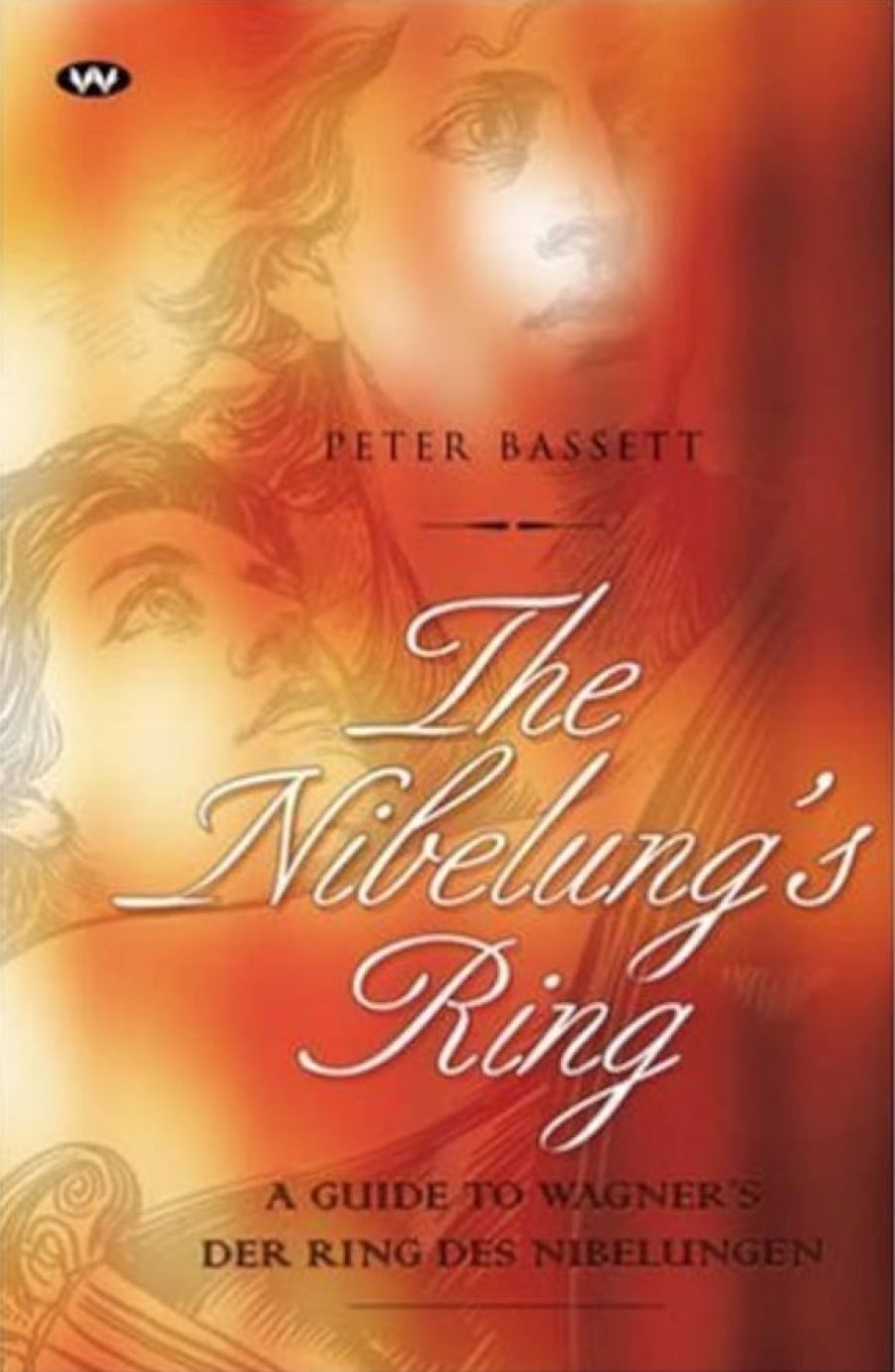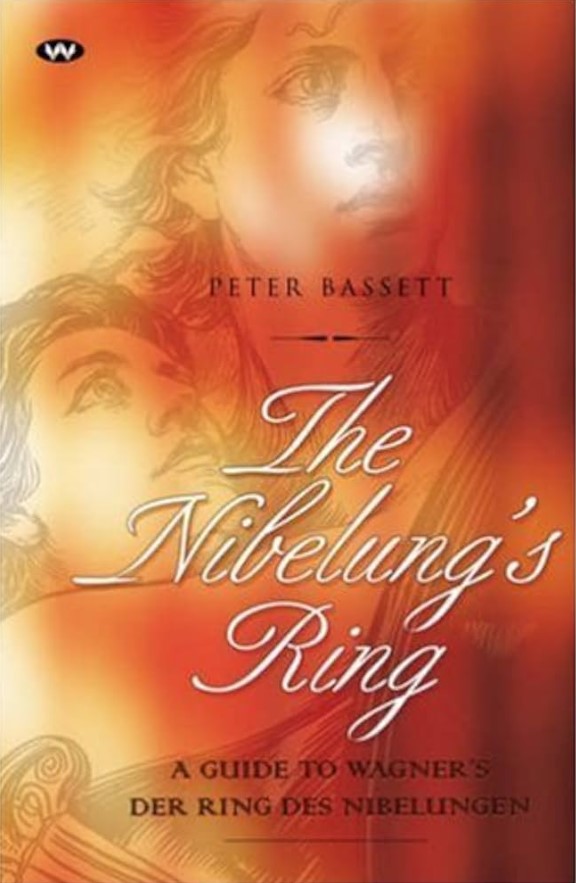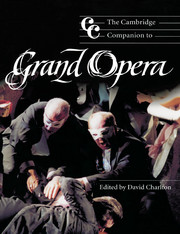
- Free Article: No
- Contents Category: Opera
- Review Article: Yes
- Article Title: Endless Pilgrimage
- Online Only: No
- Custom Highlight Text:
While you read this review, someone somewhere in the world is organising his or her calendar for the next few years to make sure that it will include at least one performance of The Ring. Special flights, advance tickets, holidays and sabbaticals will be juggled with, and ‘The Festival Play of Three Days with a Preliminary Evening’ will be tracked down and added to a pilgrim’s relentless progress. The opportunities are widespread temporally and geographically. Bayreuth manages a new or an adapted production each year, and opera houses and festival sites round the world have become devoted to mounting Ring productions – some at colossal cost and others of ingenious improvisation. Cologne and Adelaide are merely the latest to come to mind, within a month or two of each other this year. Der Ring des Nibelungen has at last become the World Drama that Richard Wagner planned; however its box-office success is taking its composer’s real intention ever further from realisation.
- Book 1 Title: The Nibelung’s Ring
- Book 1 Subtitle: A guide to Wagner’s Der Ring des Nibelungen
- Book 1 Biblio: Wakefield Press, $34.95pb, 335pp
- Book 1 Cover Small (400 x 600):

- Book 1 Cover (800 x 1200):

- Book 2 Title: The Cambridge Companion to Grand Opera
- Book 2 Biblio: CUP, $59.95pb, 517pp
- Book 2 Cover Small (400 x 600):

- Book 2 Cover (800 x 1200):

The most remarkable aspect of its apotheosis is the transformation of a definitive nineteenth-century work of art into something more like a New Age holistic spectacle. Wagner might prefer this to an even worse perversion of his intentions – the pursuit of great voices and indulgent producers to every point of the globe, together with the comparing of recorded Wotans, Brünnhildes and Siegfrieds. What was meant to reveal the ending of the world and its possible redemption through love, a wish-list born of the curse of nineteenth-century capitalism, has become a trophy exhibit of names and dates (Melchior or Windgassen, Flagstad or Nilsson, Schorr or Hotter, Wieland Wagner or Patrice Chereau, Karl Böhm or Pierre Boulez), a consequence of modem society’s entrepreneurial confidence.
These gloomy thoughts arise from a reading of Peter Bassett’s admirably straightforward exposition of the cycle, reissued to grace the forthcoming Adelaide Ring. Bassett reminds us how Wagner’s score was perceived in the heady days of Victorian revolution. He presents in the clearest terms the crucial distinction of The Ring, the balance that Wagner’s genius maintains between a comprehensive allegory of the destructiveness of the pursuit of power, and the innovative majesty of music. He points out that in the middle of some high-minded exegesis of his philosophical and mythical vision, Wagner was wont to admit that he was just as much concerned with absolute musical value.
Bassett’s good sense should take the reader back to that remarkable text, Bernard Shaw’s The Perfect Wagnerite (1923), the most persuasive account of how great music may arise from revolutionary analysis and flood what it anathematises with the highest art.
It was a cornerstone of Shaw’s interpretation that the seriousness of Das Rheingold, a consistently sustained fable of human will and its opposition to God-directed opportunism, maintained with deceasing political momentum through the next two parts, Die Walkiire and Siegfried, is finally abandoned in Götterdämmerung. Despite the culminating work’s majestic moments, Wagner reverts to a species of Meyerbeerian Grand Opera. His orchestral and vocal apparatus vastly surpasses Meyerbeer, but his scope and purpose descend to spectacle. To support this argument, Shaw points to the technique of the drama being carried by voices appearing singly and antiphonally in the earlier operas, subverting the expectation of lazy audiences such as those at the Paris Opera. In Götterdämmerung on the other hand, the action is carried in voluptuous duetting and thunderous choral writing. Each time I encounter Das Rheingold, I feel more certain that Shaw is right, and find I cannot look forward to the extremity of Götterdämmerung. The gigantism which Wagner somehow redeems in the saturated textures of Parsifal is glutinous in Götterdämmerung.
Perhaps the long hiatus in the composition of The Ring between the end of Act Two of Siegfried and the completion of the cycle affected Wagner’s inner responses. If so, this would be ironical since it was during this gap that he composed Tristan und Isolde and Die Meistersinger, two works greater than The Ring. Another cautionary aspect of his work on The Ring is his composing the poems and the music in reverse order. Thus, the last opera, written first as text, was imbued from the start with Grand Opera characteristics, which were then modified as he worked backwards in his poems to Das Rheingold. Bassett epitomises the Götterdämmerung style by quoting the melody sometimes known as ‘Redemption by Love’, first introduced when Brünnhilde’s defiance of Wotan in defence of Sieglinde ends Die Walküre, and which made the apotheosis of the entire cycle as she mounts Grane and rides into the fire which destroys Valhalla. Bassett admires this theme as a proper culmination, though to some of us it represents a cheapening of the whole network of leitmotifs. In The Cambridge Companion to Grand Opera, an article by Thomas Grey entitled ‘Richard Wagner and the Legacy of French Grand Opera’, traces the huge influence on Wagner of his years in Paris and the love of spectacle that characterises his early work. In later life, he often spoke of his love of the melodiousness of Vincenzo Bellini, but while he referred often and viciously to the Paris Opera, he avoided any suggestion of influence by Auber or Meyerbeer.
The second part of Bassett’s book is wasted space. His expounding of the action of The Ring gains nothing by his prose rendering of the German text. For some incomprehensible reason, he does not recreate this as dialogue, but paraphrases each line of text. Even a literal line-by-line translation would have been more useful. I have become increasingly sure that productions should always be in German, with idiomatic surtitles. Wagner cannot be separated from the German language, and if we cannot comprehend his poetry, which is undoubtedly congested and eccentric, then we must put up with linear commentary.
The Cambridge Companion is a thick and erudite volume in which experts unravel the more arcane parts of their discipline. Much that is referred to will be far from the concern of modern audiences. It is in every sense a specialist’s book. Bassett’s study, however, is intended for the general music lover and takes this fair-minded person through Wagner’s giant project with direct and uncondescending enthusiasm. Pack it for Adelaide or whatever is the next stop on the continuous Wagner pilgrimage.


Comments powered by CComment